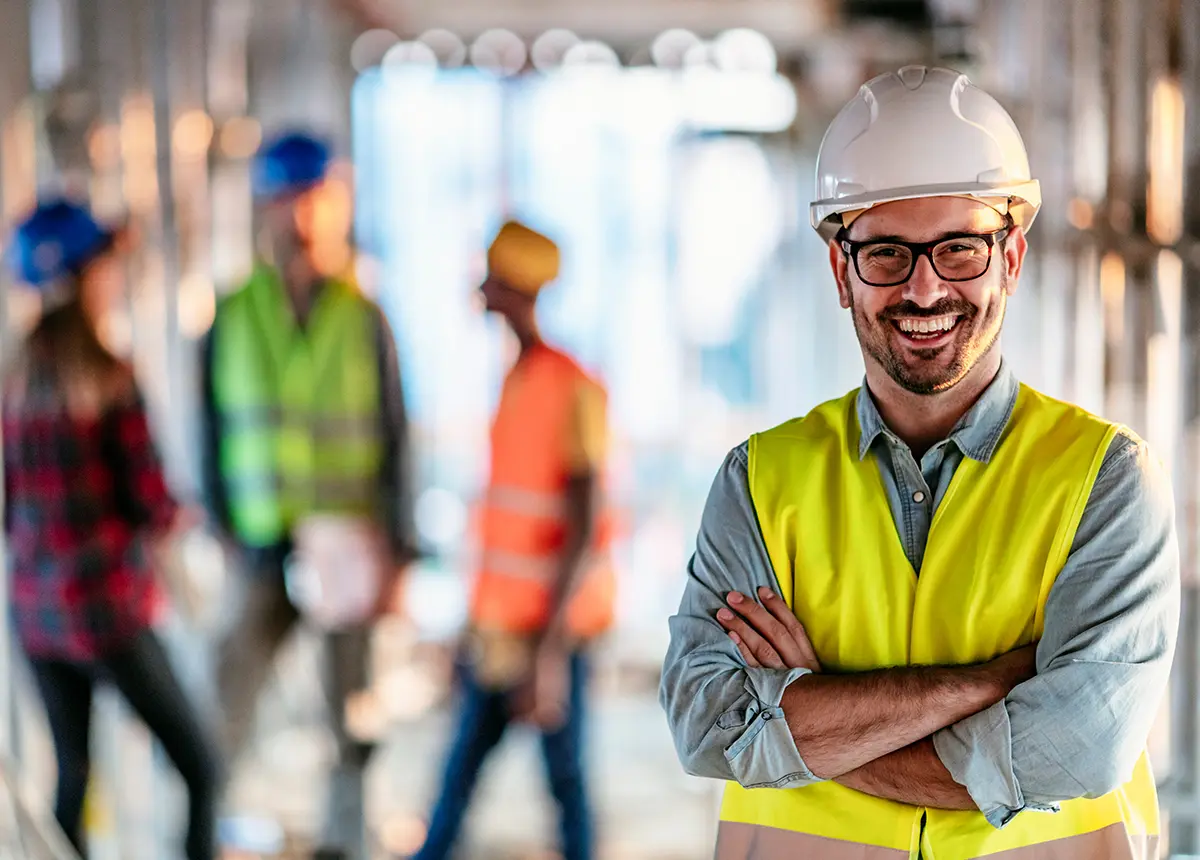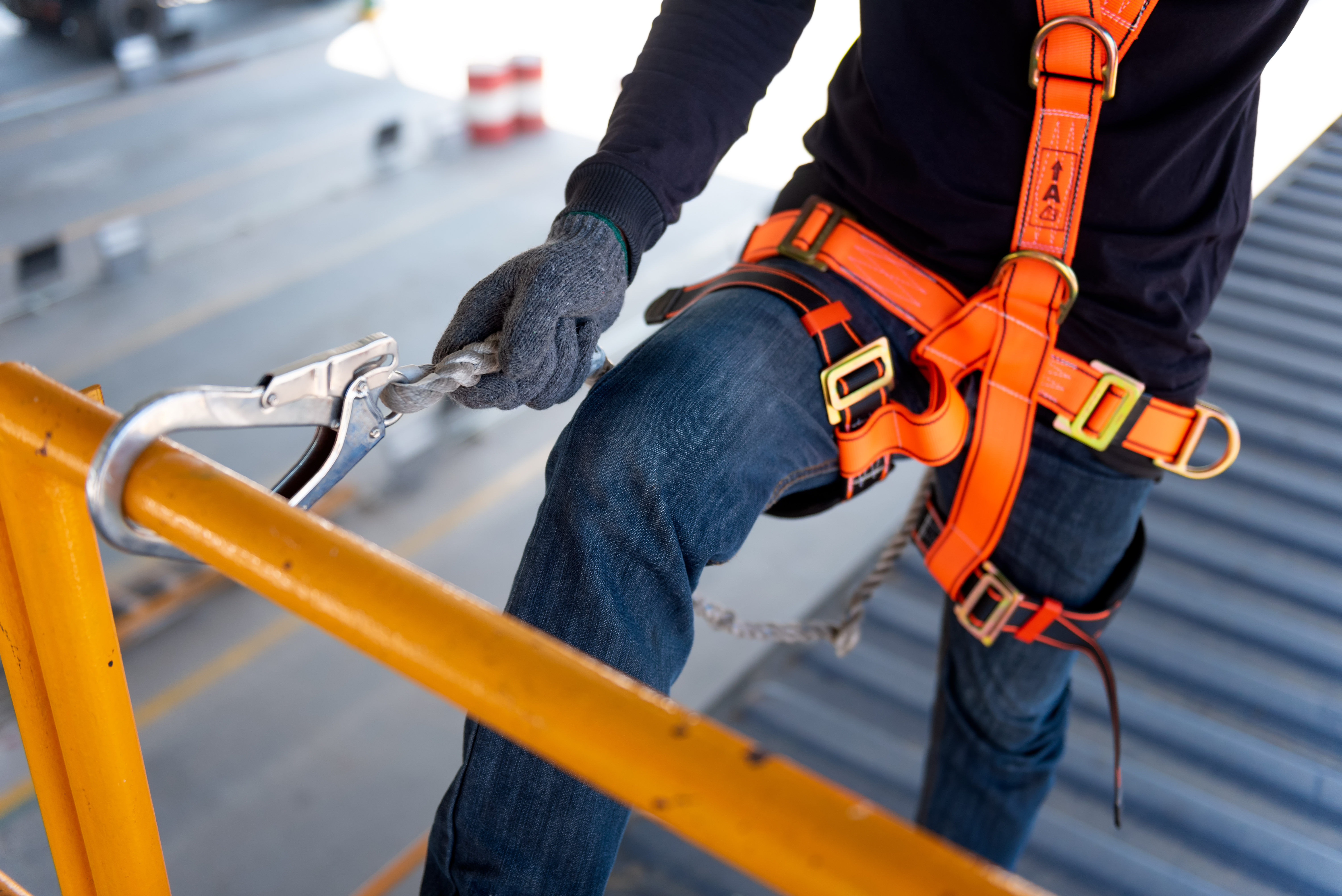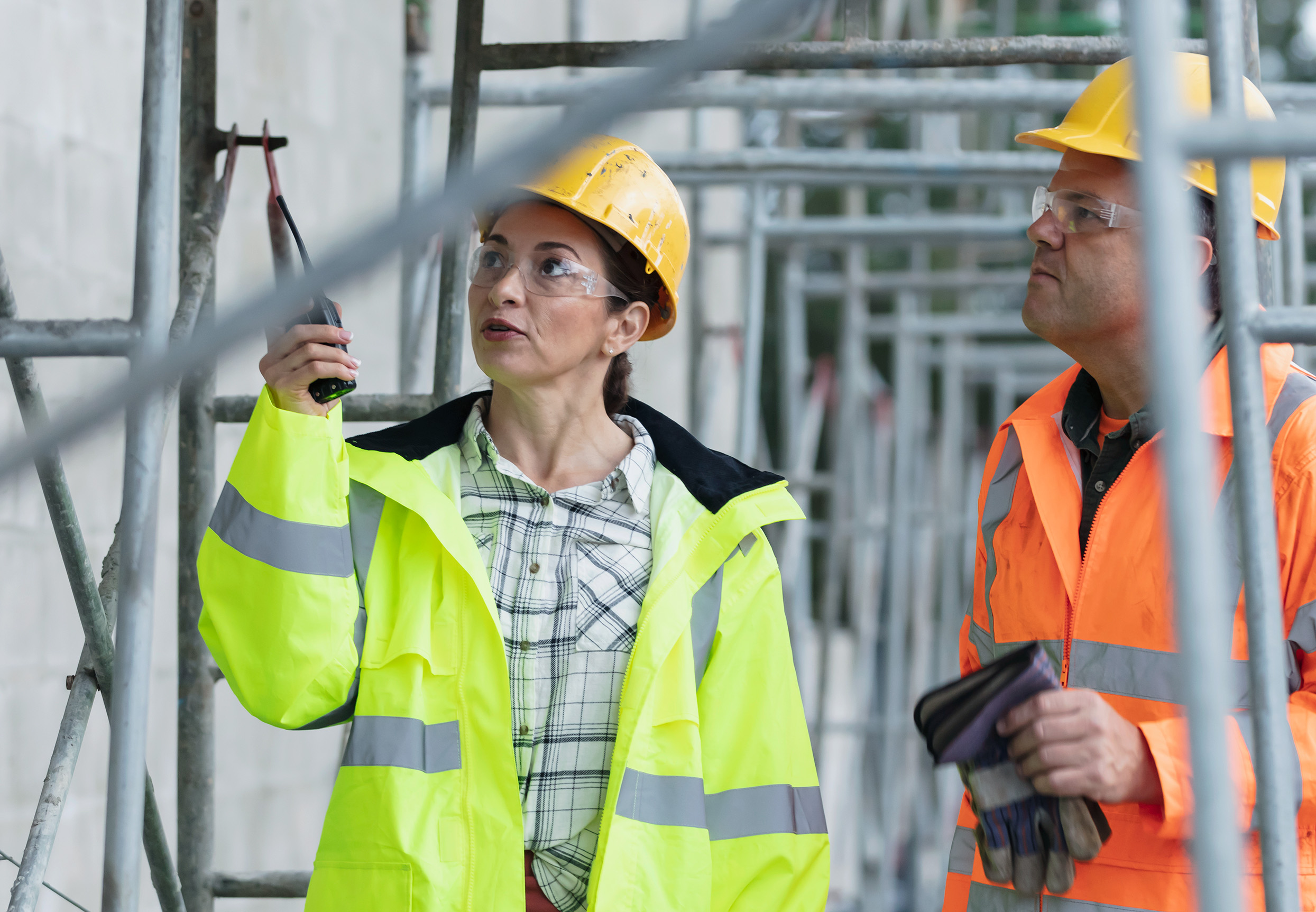
How to Prioritize Mental Health Safety in Construction
By Alliant Specialty / May 30, 2025
Listen to the audio version:
The construction industry is known for its physically demanding work, tight deadlines and high-risk working environments. These challenges can not only lead to physical injury, but also mental struggles. Despite being on the rise, mental health disorders in construction often go unnoticed. Studies have shown that construction workers are at higher risk for mental health issues, including depression, anxiety, stress and substance misuse, compared to many other professions. When mental health is neglected, it not only impacts individual workers, but can also lead to increased absenteeism, reduced productivity and safety risks on site.
Mental health, however, is often not openly discussed on job sites or integrated into workplace culture, preventing workers from seeking help. Use this article to stay informed on the rising mental health risks in construction and learn how to establish a safety culture that supports workers’ mental wellness.
Alarming Mental Health Statistics in the Construction Industry
The mental health crisis is growing in the construction industry, introducing significant risks that affect the well-being of all employees. These alarming statistics demonstrate the urgency of taking steps today to protect construction workers’ mental health:
- According to a National Health Interview Survey from the U.S. Centers for Disease Control and Prevention (CDC), 30.7% of the responding construction workers felt anxious at least once per month, and 9.3% felt depressed at least once per month.
- In severe cases, these mental health challenges can lead to self-harm and suicide. The Occupational Health and Safety Administration reported that the construction industry has one of the highest suicide rates, which is roughly four times higher than the national average.
- The American Addiction Centers found that approximately 15% of all construction workers in the United States have a substance abuse disorder, and the CDC has stated that construction and extraction occupation groups experience some of the highest death rates from drug overdoses.
Why are Construction Workers at a Heightened Risk for Mental Health Disorders?
Several factors contribute to the heightened risk of mental health challenges among construction workers:
- Physically Demanding Work: The intense physical labor required on construction sites can lead to chronic pain and fatigue, which are closely linked to mental health issues like depression and anxiety.
- Job Insecurity and Irregular Hours: Many construction jobs are project-based, leading to periods of unemployment or uncertainty about future work. Irregular hours and frequent overtime can also disrupt work-life balance and increase stress.
- Challenging working conditions (e.g., extreme heat and cold): Extreme weather increases the risk of accidents and injuries. Constantly needing to stay alert in unsafe conditions can raise stress levels and contribute to chronic anxiety.
- Financial uncertainty due to seasonal work and a fluctuating economy: Unpredictable income makes it difficult for workers to budget, plan for the future or handle emergencies, leading to chronic stress and anxiety.
- Deadlines: Tight deadlines, safety risks and pressure to perform efficiently can create a high-stress atmosphere that takes a toll on mental well-being.
- Poor work-life balance: Many construction jobs require extended hours. Missing family events or having limited time with loved ones can lead to feelings of guilt, isolation and disconnection.
- Stigma Around Mental Health: The construction workplace culture, often centered around physical strength and perseverance even in the harshest conditions, may discourage workers from discussing emotional struggles or seeking help, leading to isolation and untreated issues.
- Lack of Support Resources: On many sites, mental health resources are limited or not clearly communicated, leaving workers unsure of where to turn for help.
Recognizing the Warning Signs of Mental Health Struggles in Construction
Learning how to spot early signs of mental health struggles is crucial for creating a safer, more supportive work environment. While symptoms may vary from person to person, here are some common warning signs to watch for in construction workers:
- Changes in Mood or Behavior:
- Sudden irritability, anger or mood swings
- Increased sensitivity or emotional outbursts
- Withdrawal from coworkers or usual social interaction
- Decline in Work Performance
- Difficulty concentrating or making decisions
- Increased mistakes, forgetfulness or reduced productivity
- Frequent lateness or unexplained absences
- Physical Symptoms
- Fatigue or low energy, even after rest
- Unexplained aches, headaches or digestive issues
- Neglect of personal hygiene or appearance
- Risk-Taking or Unsafe Behavior
- Disregard for safety protocols
- Increased use of alcohol, drugs or other substances
- Recklessness with tools, machinery or while driving
- Verbal Cues and Expressions of Hopelessness
- Talking about feeling overwhelmed, trapped or hopeless
- Expressing a lack of purpose or questioning their value
- Joking or speaking about death, self-harm or suicide
How to Address These Signs in Construction Workers
As the mental health crisis grows, it is critical that leaders in the construction industry address these issues head-on, rather than ignoring them. Use these strategies to help employees who may be struggling with their mental health:
- Start a conversation in a private, non-judgmental way.
- Listen actively and encourage them to talk.
- Refer them to support resources, such as an Employee Assistance Program (EAP), mental health professional or crisis hotline.
- Follow up—letting someone know you care can make a significant difference.
- Incorporate mental wellness strategies and check-ins into safety briefings and trainings.
Taking mental health seriously isn't just a matter of well-being—it's a matter of safety and sustainability. Workers who are mentally healthy are more focused, make better decisions and are less likely to be involved in accidents. Supporting mental health also fosters a more positive, respectful workplace culture, which boosts morale and retention.
The construction industry has long prioritized physical safety. Now, it must give equal importance to mental well-being. By raising awareness, providing resources and creating open lines of communication, construction companies can protect their most valuable asset: their people.
Contact a representative from Alliant Safety & Loss Control for helpful resources and strategies to improve your workplace safety.
Alliant note and disclaimer: This document is designed to provide general information and guidance. Please note that prior to implementation your legal counsel should review all details or policy information. Alliant Insurance Services does not provide legal advice or legal opinions. If a legal opinion is needed, please seek the services of your own legal advisor or ask Alliant Insurance Services for a referral. This document is provided on an “as is” basis without any warranty of any kind. Alliant Insurance Services disclaims any liability for any loss or damage from reliance on this document.




